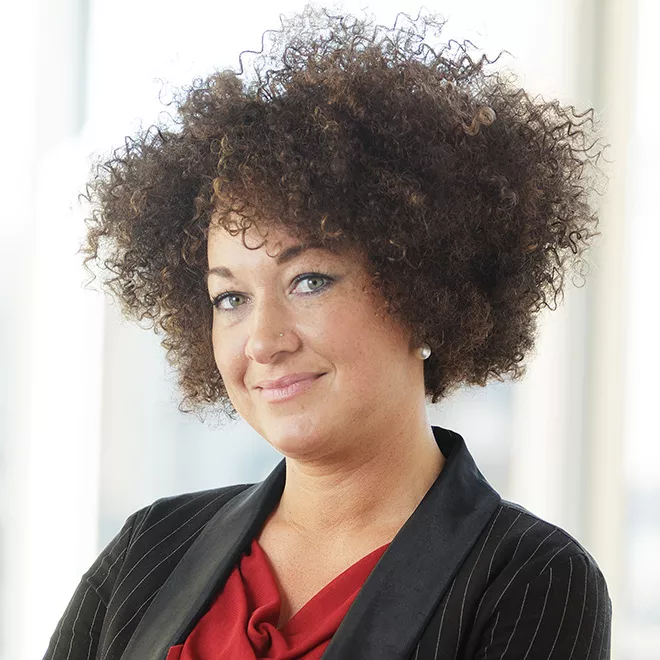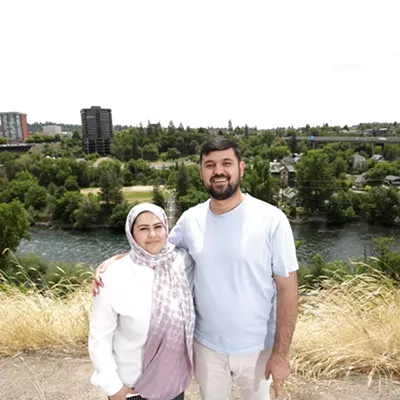"Mayday, Mayday, Mayday," seemed to be the call of more than 100 protesters lined up to march in Spokane last week, seeking urgent immigration reform. "We have written letters, gone on hunger strikes, made phone calls and are marching again to send a message to Cathy McMorris Rodgers that this issue is important to the people she represents," said Dr. Martin Meraz-Garcia from Eastern Washington University's Chicano Education Program. "This is about having compassion for others. It's a humanitarian issue we should all care about."
While immigration reform is supported by more than 70 percent of Americans, the small gathering at last Thursday's march suggests an underrepresentation of regional voters. "All people should understand that immigration reform is important, because these people are a part of our society and the backbone of our workforce," said Jackie Vaughn, a leader of MEChA de EWU, a Chicano student group. "We need people to be proactive and not just passively supportive." Key legislation overwhelmingly passed the Senate in 2013, but if that bill, S. 744, does not make it to a vote in the House by this August, the movement will suffer a major setback.
Most of the rally participants were college students and community members who signed individual petitions to help leverage the bill into a House vote. Among the primary concerns voiced at the event were undocumented workers who pay federal taxes but cannot participate in federal programs; dedicated laborers who have savings but cannot secure a mortgage; and college students who are earning degrees but have no route to getting a job afterward. For activists like Martin, the issue hits even closer to home: "I have nieces that are undocumented in the U.S. The more years that pass by, the less of a chance they have for a college education and career. Their lives are basically on hold."
Legislation that provides a route to citizenship remains unfinished business. The bill that passed the Senate includes a lengthy process to becoming a citizen, but supporters of immigration reform are OK with that. "You don't automatically become a citizen. You have to earn it. Under this proposed process, from the time you apply to the 13th year, if you have a clean record and don't commit a crime, you will become a citizen. Even if it's 13 years, it would be nice to have a process," explains Martin.
Liberty Park United Methodist Church was the only faith-based organization present at last week's rally, while the Peace and Justice Action League, Occupy Spokane, and students from Whitworth, Gonzaga and Eastern generated the rest of the crowd. Vaughn, the student organizer, hopes the voices of those present will catalyze greater momentum toward collective action: "We need people to call Cathy McMorris Rodgers and let her know they support comprehensive immigration reform."
If you don't think this issue affects you, Meraz-Garcia reminds us that "anyone who has eaten an apple or stayed the night in a hotel has benefited from undocumented labor. We should care about not continuing to exploit the individuals who feed us." ♦
Rachel Dolezal, formerly of the Human Rights Education Institute in Coeur d'Alene, is an award-winning artist and activist who teaches courses in art, Africana history and culture at area universities.





















